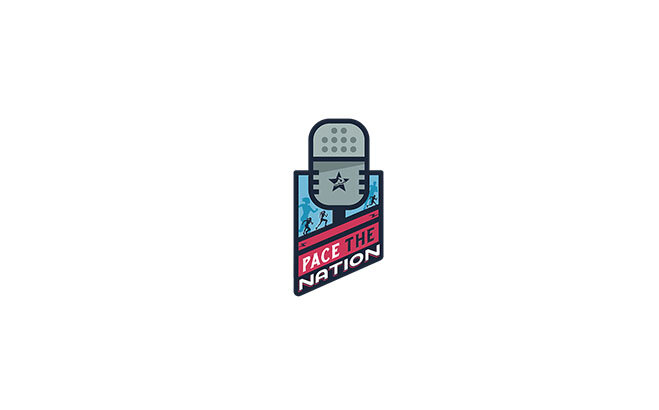By Monica Gonzales
The food we eat each day, the way in which we fuel our bodies, has an immense impact on our health and how we feel physically. But what about our mental health? Many people are unaware of the way the vitamins and minerals in our food can directly contribute to feelings of joy and happiness, or how a lack of certain nutrients can end up leaving us to feel more down. Whether you are working through the normal seasonal depression (hello gray Seattle winter!), or you’re feeling the weight of this heavy and difficult year, or you’re just looking for ways to boost your overall mood, this article can serve as a guide to help support mental health in a very natural and non-invasive way.
The body and the brain are intrinsically connected, and chemical imbalances in the brain that are associated with mental health and mood disorders, such as depression, will also mean metabolic imbalances in the body and in the gut. Research continues to come out about this profound connection, called the “gut-brain axis,” and is shedding light on the power of food as medicine.
This is a complex topic, but let’s start to break it down in a general way. Our neurotransmitters in our brains are the chemical messengers that pass information from one nerve to another, and also regulate many functions of the body, including your mood and emotions. Two familiar neurotransmitters are serotonin and dopamine, otherwise known as the “happy hormones.” Neurotransmitters are made up of amino acids, which our bodies get from the proteins we eat. Vitamins and minerals, also found in our food, assist in neurotransmitter activity and can protect neurotransmitters from damage. If a diet is lacking, even in small amounts, in these specific amino acids or vitamins and minerals, a person will experience changes in mood and emotions. A person’s diet can also cause the neurotransmitters to become more or less active, and the changes in activity can stimulate imbalances, which will lead to mood swings, irritability, and essentially increase the impact on our emotions and eventually affect other systems in the body.
Nourishing your body will in turn nourish your mind. Here are some powerful nutrients that are directly linked to systems of the body and the brain that can support our mental health.
Omega-3’s
Cell membranes, the protective, outer shell of every cell in our body, are all made up of fats, otherwise known as lipids. All of our body processes start and end at the surface of our cells. If we’re not getting enough healthy fats, like Omega-3’s, our cell membranes will not be healthy. Additionally, the brain is one of the organs made up of the highest level of lipids (fats) in the body. Omega-3’s will help keep our cell membranes healthy, improving communication and function of all of our cells, as well as regulate hormones, decrease inflammation, and directly fuel the brain. You can find an abundance of omega-3 fatty acids in the following foods:
· Fatty fish – like mackerel and sardines
· Salmon
· Oysters
· Herring
· Flax Seeds & Chia seeds
· Soybeans
· Walnuts
· Eggs
Vitamins B12 & B6
Overwhelming research evidence links low B12 and B6 vitamin levels to mood disorders and depression, and unfortunately, deficiency in these vitamins is very common. Vitamin B6 is the enzyme, otherwise known as a catalyst or helper, that converts the amino acid tryptophan into serotonin. The direct link to vitamin B12 and mood disorders is not yet clear, but study after study finds that low levels of vitamin B12 are consistently associated with anxiety and depression. Increase your vitamin B levels with the following foods:
· Beans
· Potatoes
· Spinach and other leafy greens
· Eggs
· Milk
· Beef
· Turkey & chicken
· Oysters & clams
· Yogurt
Folate
When it comes to functions of the brain, folate is right there next to the B vitamins in importance. Folate is the naturally occurring form of the vitamin B-9, and again, low levels of folate are linked to mood disorders. Folate is important in the formation of dopamine and serotonin, those happy hormones earlier mentioned. It also contributes to the formation of red blood cells, protein metabolism, and cell growth in the body. Folate naturally occurs in foods such as:
· Asparagus
· Eggs
· Leafy green vegetables – kale, spinach, cabbage
· Peas
· Chickpeas & kidney beans
Vitamin D
Vitamin D is often more difficult to find in our everyday food supply. And in winter months, when our bodies are less exposed to sunlight, deficiency is even more common. This often results in the seasonal depression many of us feel. Vitamin D receptors in the brain have been found to be located in the same region associated with depression. Studies have shown that low levels of vitamin D are linked to higher levels of depression and anxiety. Many foods high in Vitamin D are also previously listed with the Omega-3 fatty acids. These foods include:
· Salmon
· Herring & Sardines
· Tuna
· Egg yolks
· Mushrooms
· Dairy
Magnesium
This mineral contributes to helping our bodies convert our amino acids to serotonin. It is also known as the “relaxation mineral” and can relieve stiff, tight, irritable parts of the body, including mood. Magnesium also helps to activate Vitamin D in the body and can help relieve anxiety and insomnia. Chronic stress, as well as alcohol, coffee, sugar and sweating will all decrease our magnesium levels. Foods high in magnesium include:
· Avocados
· Nuts, especially almonds and cashews
· Dark Chocolate
· Spinach
· Beans/Legumes
· Tofu
· Whole grains
· Bananas
· Dark leafy greens
Beyond foods that we eat, there are other activities we can do to combat mood swings and support our mental health. Studies have continuously shown the valuable psychological impact of being outside and exercising. Implement these foods into your weekly meals, and call your Rad Running coaches for a personalized running plan and extra motivation to lace up your running shoes, get outside, and feel your best.
References:
The UltraMind Solution, by Dr. Mark Hyman
https://www.ncbi.nlm.nih.gov/pmc/articles/PMC2908269/
https://www.ncbi.nlm.nih.gov/pmc/articles/PMC2738337/











